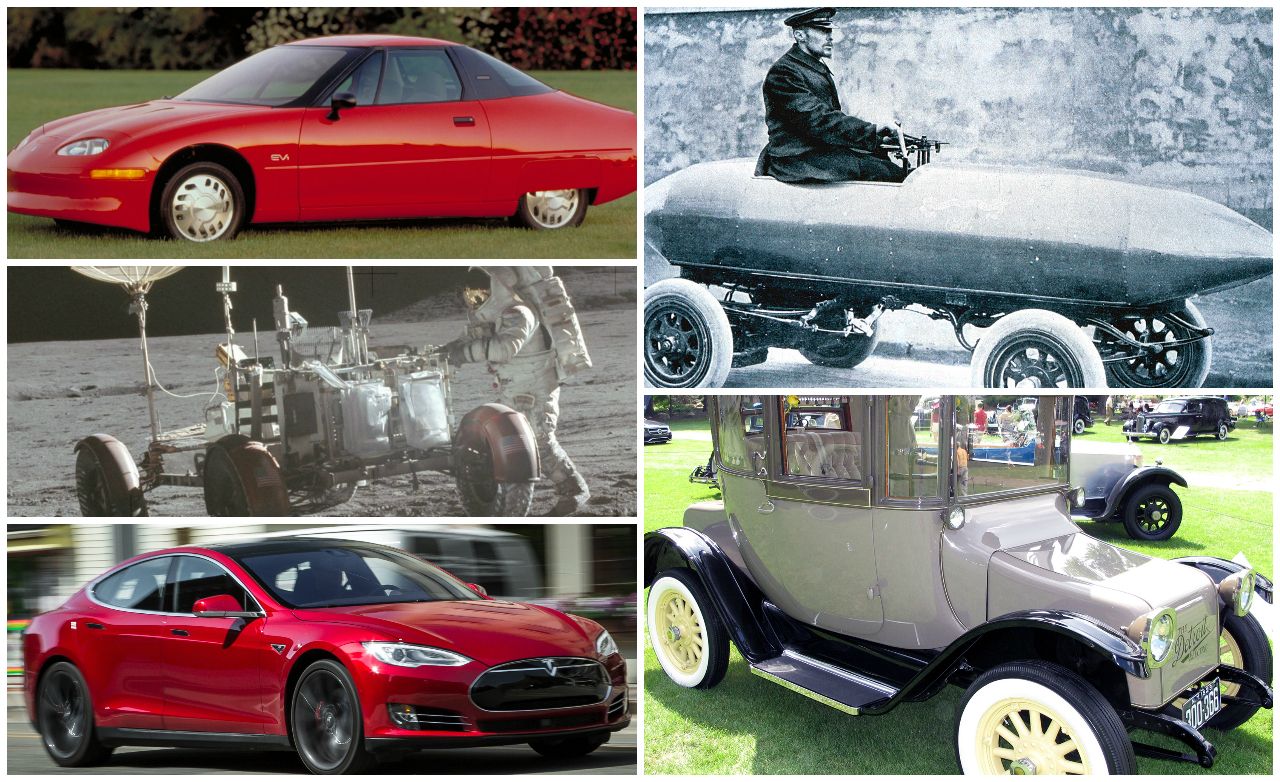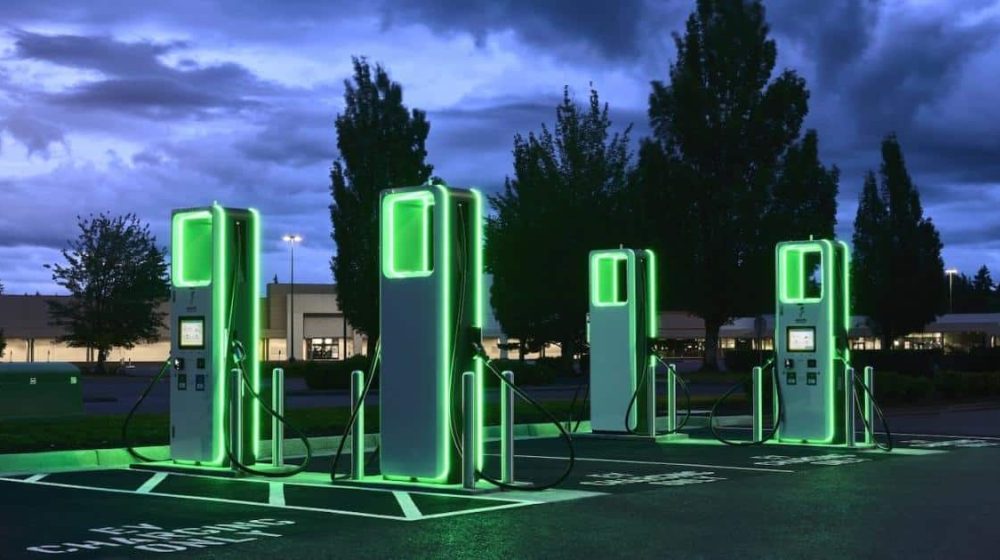Breaking down the industry advancements in EV cars
Get an in-depth analysis of the latest industry advancements in electric vehicles. Know your EVs better and explore the transformative world of green transportation.

Electric vehicles (EVs) are at the forefront of modern transportation, thanks to significant industry advancements. They've set a new benchmark for automobile engineering, with innovative strides becoming more frequent in the ever-evolving world of green mobility. This article aims to explore these developments, breaking down key aspects of the progress inherent to the industry advancements in EV cars.
Accomplishments in EV advancements: Setting the Stage
In the following sections, we journey together into this fascinating universe, exploring and feeling the pulse of what drives the seamless evolution of EV technology.
Table of Contents
- Foray into History: The Evolution of EV Cars
- Battery Technology: Fueling the Future
- Charging Stations: Powering Up the Electric Highway
- Sustainability: The Green Effect of EVs
- Autonomous Features: The Smart Side of EVs
- Challenges: Overcoming Obstacles in the Drive Forward
Foray into History: The Evolution of EV Cars

The history of EV cars tracks back to the 19th century when they were considered a reliable mode of transportation. However, their popularity dwindled with the advent of gasoline cars. It wasn't until the rising environmental concerns of the late 20th century, that the industry saw a resurgence of electric vehicles.
Different periods in history saw varying levels of interest in electric vehicles, characterized by both growth and decline phases. Yet, they each contributed to the defining industry advancements in EV cars, making them a promising contender in the automotive industry today.
The Early Days
The invention of the first practical electric vehicle is credited to Thomas Davenport in 1835. However, it was Robert Anderson of Scotland who created the first crude electric carriage using non-rechargeable cells, marking a significant step forward for the industry.
The Renaissance Period
Threatened by the rise of petroleum-based vehicles, electric vehicles underwent a stagnation phase before coming back stronger in the 1970s. It was a period marked by notable advancements like the development of the first electric vehicle with a lithium-ion battery.
Battery Technology: Fueling the Future
Battery technology forms the backbone of electric vehicles. Over the years, the industry has witnessed a paradigm shift with each successive breakthrough.
"The evolution of EV technology can be tracked through the advancements in battery technology over the years. As battery technology improved, so too did the functionality, efficiency, and practicality of EV cars."
The Advent of Li-ion Batteries
The pivotal change came in the form of lithium-ion batteries, promising longer battery life, higher energy densities, and quicker charging abilities. The leap from traditional lead-acid batteries to lithium-ion has been instrumental in making EVs more palatable to traditionally gasoline-dependent consumers.
Today, most electric vehicles rely on these rechargeable lithium-ion cells. They can store large amounts of energy and deliver it in a steady flow, making them perfect for powering vehicles on long journeys.
Charging Stations: Powering Up the Electric Highway

The availability of charging infrastructure plays a crucial role in facilitating the widespread adoption of electric vehicles. This dimension of the EV industry has seen notable growth, with major cities around the world investing heavily into appropriate infrastructure.
- Home Charging Stations: Many electric vehicle users prefer overnight charging at home using standard electrical outlets or home charging installations. This allows for a fully charged vehicle in the morning without drop-ins at public stations.
- Public Charging Stations: Like gasoline stations, public charging stations are increasingly common. These offer high speed charging and represent a key step towards making EVs as convenient as their petroleum counterparts.
- Wireless Charging: A novel advancement, wireless charging involves the transfer of power from the charging device to the vehicle without the need for cords or plugs.
These developments are pivotal in building a massive EV infrastructure that addresses the ever-changing demands of our society.
Sustainability: The Green Effect of EVs
One compelling reason for the surge in popularity of EVs is their potential to reduce the environmental impact of transportation. The prospect of a cleaner, green future rides significantly on the wheels of electric vehicles.
Reduced Emissions
Unlike petrol or diesel cars, electric cars emit zero tailpipe pollutants. This contributes to a significant reduction in dangerous air pollution linked to health issues and climate change.
While there is an argument that EVs aren’t entirely ‘zero emission’ due to the electricity they use for charging, the overall emissions are still drastically less than traditional vehicles. As more renewable energy sources feed the power grid, the emission rates associated with EVs will only continue to decrease.
Autonomous Features: The Smart Side of EVs
The lines between the automotive and tech industries have blurred, and nowhere is this more evident than in the EV space. Many electric vehicles now feature advanced driver-assistance systems (ADAS), moving them closer to becoming fully autonomous vehicles.
"EVs equipped with autopilot technology are influencing how we perceive mobility. These advancements are not only transforming transport experiences but also redefining safety standards."
Such features include adaptive cruise control, blind spot detection, collision avoidance systems, automated parking, and much more. These innovations contribute significantly to safety and provide an enhanced driving experience.
Challenges: Overcoming Obstacles in the Drive Forward
Despite the exponential growth and potential of electric vehicles, the industry still faces notable hurdles.
Range Anxiety
One significant challenge for many potential EV buyers is "range anxiety" — the fear that a vehicle has insufficient range to reach its destination and will leave the driver stranded. Although modern EVs boast impressive ranges, this psychological barrier is a major hurdle to widespread adoption.
Infrastructure
The availability and accessibility of charging stations can be another roadblock. While there's been substantial progress in building infrastructure, there's still a long way to go in terms of universal accessibility and charging speed. Expanding infrastructure, especially in rural and remote areas, remains a top priority.
The progress evident in the industry advancements in EV cars is undeniable. As society continues to evolve towards a greener and more efficient future, overcoming these challenges is a necessity. It’s a journey into sustainability, and much like a classic road trip, it promises to be a rewarding ride with the right blend of excitement, trepidation, and ultimately, triumph.
Let's buckle up and enjoy this transformative ride into the thrilling world of electric vehicles. Rest assured, it'll be a journey to remember!
What's Your Reaction?











































































